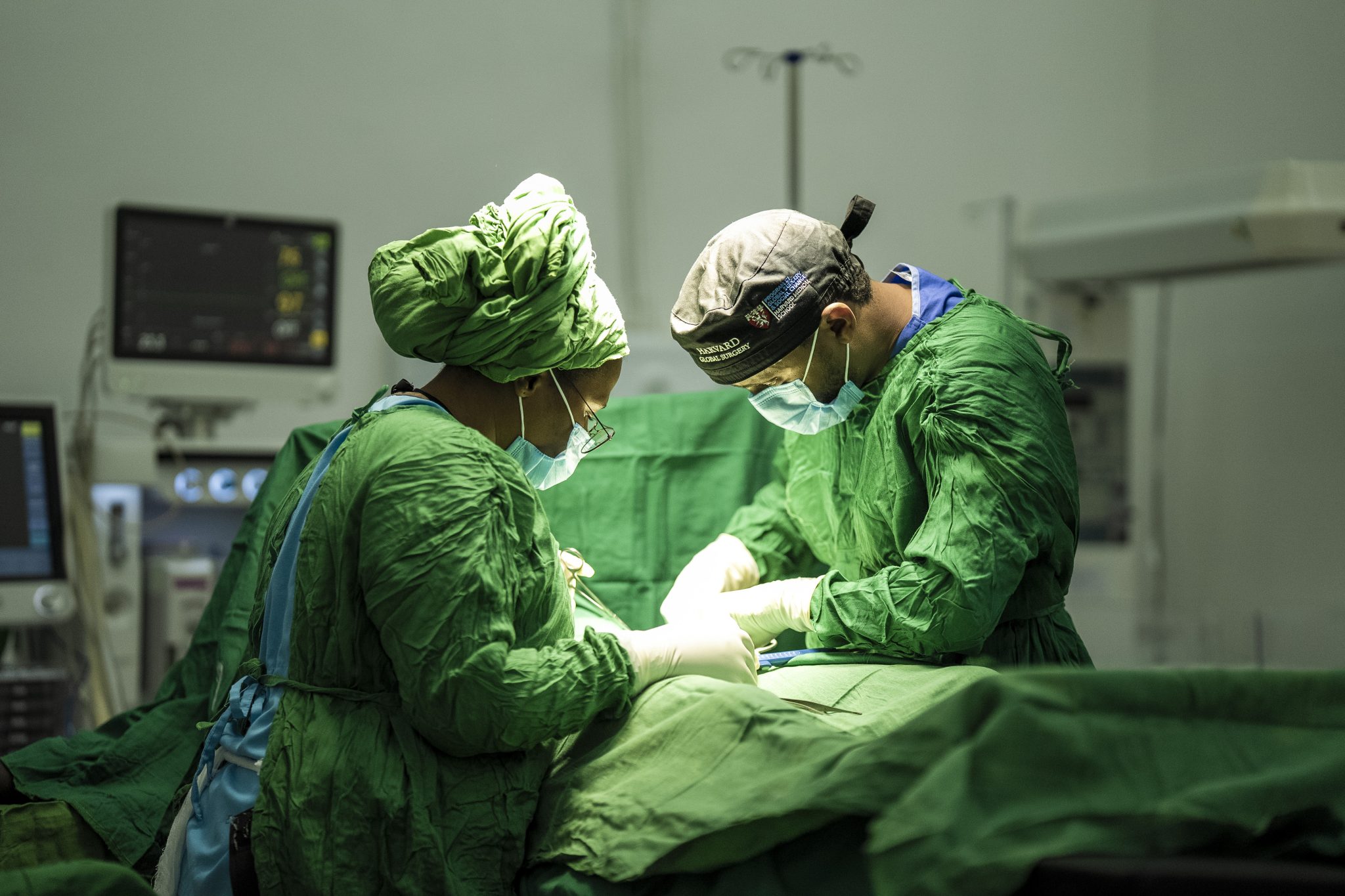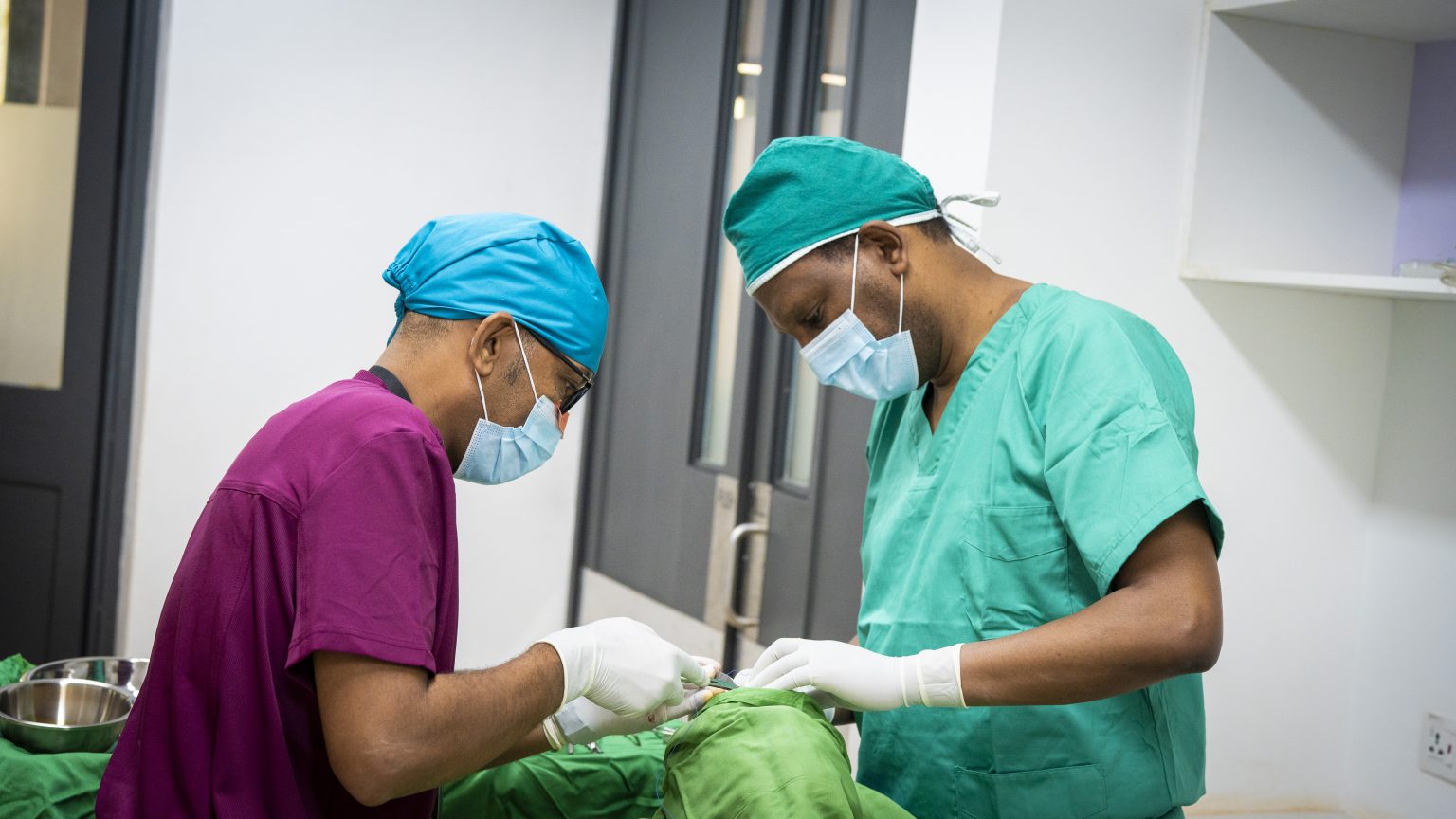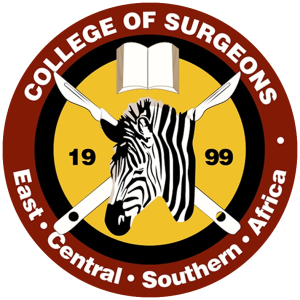General Surgery Residency Programme(MMed/FCS-ECSA)
October 23, 2025 2025-11-13 13:48General Surgery Residency Programme(MMed/FCS-ECSA)
General Surgery Residency Program (MMed/FCS-ECSA)
Applications are closed
Overview of the Program
UGHE’s General Surgery Residency pairs rigorous clinical training with close mentorship to meet the standards of the College of Surgeons of East, Central, and Southern Africa (COSECSA). Through rotations at COSECSA-accredited hospitals across Rwanda, residents gain broad operative exposure, sound peri-operative judgment, and the leadership skills to strengthen surgical care in resource-variable settings. Teaching is delivered by expert UGHE faculty alongside College-appointed assessors.
Program highlights
Dual credential pathway: Upon successful completion of College examinations and University requirements, graduates are awarded FCS (GS ECSA) and MMed in General Surgery (UGHE).
Hands-on clinical breadth: High-volume rotations across diverse Rwandan training sites.
Close mentorship: Small teams, regular feedback, and structured skills development.
Scholarly growth: Protected time for research, quality improvement, and professional development.
Equity at the core: Training designed to advance safe surgery and health equity across the region.
The General Surgery Residency Program at UGHE is designed to train surgeons who are:
- Competent and independent practitioners: capable of performing surgery safely, confidently, and at a specialist level, while also contributing to clinical research and surgical education in Rwanda and beyond.
- Grounded in strong ethics and lifelong learning: upholding the highest standards of professionalism and maintaining a continuous commitment to personal and professional growth.
- Dedicated educators and mentors: equipped and motivated to transfer knowledge, skills, and values of ethical surgical practice to medical students and junior trainees.
- Leaders in their field: demonstrating integrity, innovation, and the ability to inspire teams and systems toward excellence in surgical care.
- Aligned with national priorities: supporting the Government of Rwanda’s strategic goals in education and health through service, training, and capacity building.
- Committed to equity and service: providing high-quality surgical care to rural and underserved communities.
- Strengthened through global collaboration: benefiting from partnerships with leading international universities and experts to ensure world-class mentorship, research exposure, and subspecialty training opportunities.

Program content
This Residency Program introduces several innovations; it is designed to build upon the existing curricular requirements for General Surgery in Rwanda and COSECSA region. The graduates will complete all the same learning objectives as a graduate of any other residency program in the region.
Phases of the program
The residency program is structured in two distinct phases to ensure progressive acquisition of surgical knowledge, clinical skills, and professional competencies in Rwanda and across the COSECSA region. It is competency-based, regionally harmonized, and designed to address surgical workforce needs in the country and beyond.
MCS Phase (Years 1–2): Core Training & Foundations
Purpose: Build the fundamental knowledge and skills for safe, generalist surgical practice under COSECSA standards.
Clinical focus: Diagnosis and management of common surgical conditions and emergencies; peri-operative care and ward management; supervised participation in theatre lists.
Skills development: History-taking, examination, imaging/lab interpretation, pre-op optimization, basic operative techniques (minor procedures and selected majors under close supervision), post-op care, infection prevention, fluid and pain management.
Progressive responsibility: Participate in ward rounds and emergency admissions, take supervised on-call, present cases and morbidity & mortality reviews.
Assessment: Documented logbook and workplace-based assessments preparing for the COSECSA Membership (MCS) examination.
FCS Phase (Years 3–5): Advanced Training & Dissertation
Purpose: Build advanced competence for independent general surgical practice under COSECSA standards.
Clinical scope: Gastrointestinal, hepatobiliary, colorectal, breast, endocrine, and emergency surgery; hernia repair and abdominal wall reconstruction; basic plastic & reconstructive, urology, basic vascular access procedures; selected thoracic (e.g., chest drainage, thoracotomy).
Progressive responsibility: Perform major index procedures under supervision, lead ward rounds, manage surgical teams, and take senior on-call roles.
Research requirement: Design and complete a supervised research project and dissertation, submitted and orally defended as part of the final examination.
Before you apply
- The candidate should hold a basic medical education degree (MD, MBBS, MBChB)
- The candidate must be a registered practitioner by the Ministry of Health of Rwanda with an active license to practice.
- Foreign applicants must hold a basic medical education degree (MD, MBBS, MBChB) and must produce their professional license and a letter of good standing from their local accreditation body.
- Applicants must be in acceptable physical and mental health without any serious health conditions that would limit the ability to cope with the requirements of the training program and service.
- Female candidates are strongly encouraged and given special consideration.
How to apply
Interested candidates are invited to submit the following documents via the application form link:
- Demographic and educational information (including Bachelor’s degree transcript and certificate),
- Curriculum Vitae (CV),
- Medical License to Practice,
- Letter of Good Conduct,
- Two letters of recommendation,
- A brief motivation letter outlining their educational and professional goals.
All applications will be reviewed by UGHE’s Office of Admissions, and shortlisted candidates will be invited to complete an admissions examination and interview administered by UGHE.
Important dates for the admissions process
Please be mindful of the following dates.
| Date |
Application Opens | 29 October 2025 |
Application Closes | 10 November 2025 @ 11:59 PM CAT |
Admissions Exam | 18 November 2025 |
Admissions Interviews | 25 November 2025 |
Final Decision | 12 December 2025 |
Innovation in Assessment and Pedagogy

The UGHE General Surgery Residency Program is designed to be transformative by embedding educational innovation at its core. It will distinguish itself through an immersive training model centered at district hospitals, enabling residents to serve in real-world, resource-limited settings while delivering quality surgical care.
A signature strength of the program lies in the integration of Medical Education, Global Surgery, Social Medicine, and Surgical Leadership into the surgical training curriculum. These themes are not ancillary but foundational, shaping residents into not only skilled surgeons but also educators, advocates, and systems thinkers.
Assessment throughout the residency will follow a competency-based, longitudinal model, ensuring that progression from one phase of training to the next is based on demonstrated readiness rather than time alone. Robust evaluation systems—including workplace-based assessments, objective structured assessments, and reflective practice portfolios—will guide individualized feedback and support learning.
Contacts
For any application inquiries and process-related challenges, please reach out to admissions@ughe.org .
In partnership with the College of Surgeons of East Central and Southern Africa – COSECSA


